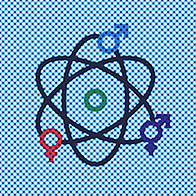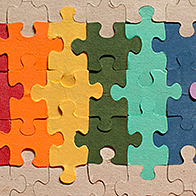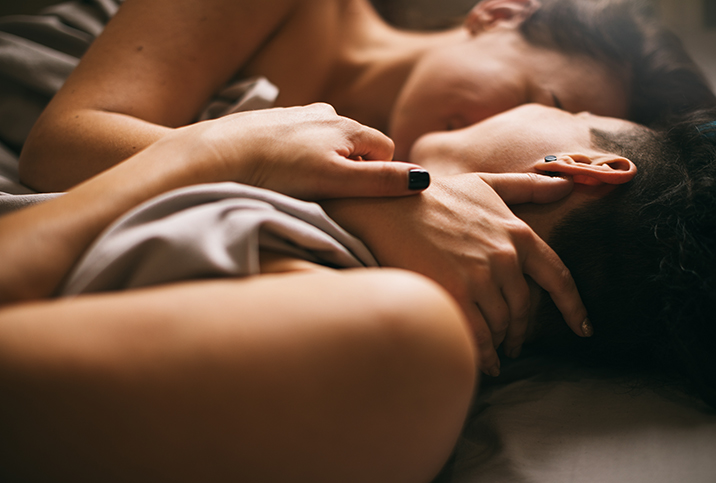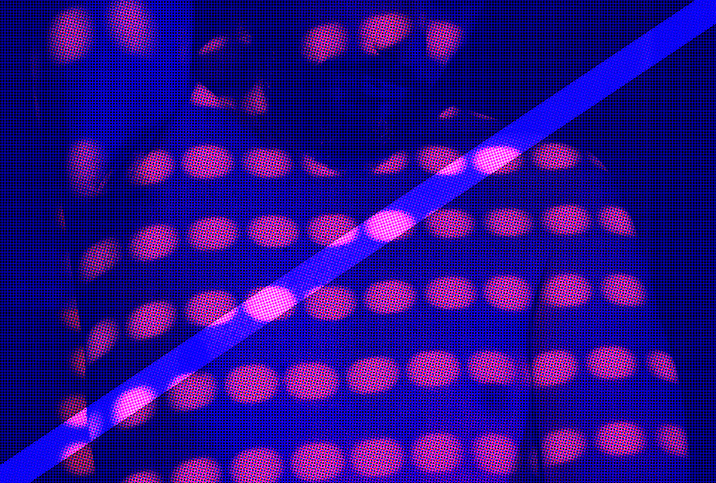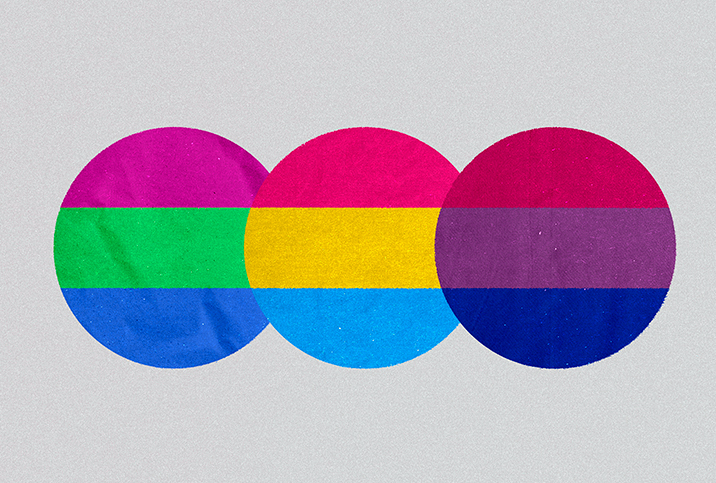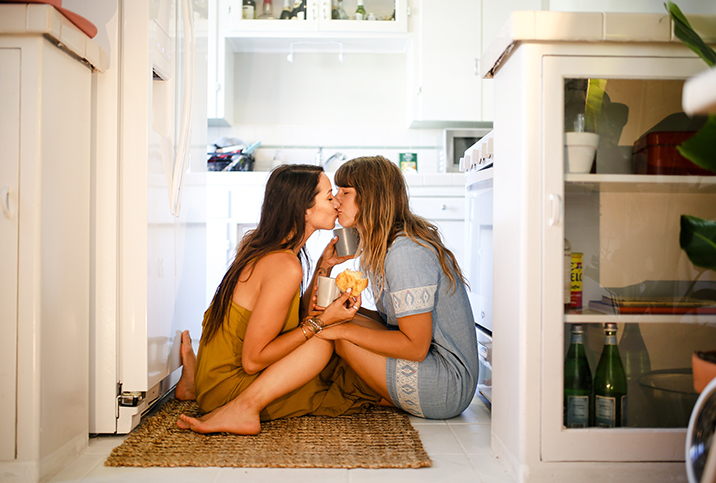The True Burden of Objectifying Bi Women on Dating Apps
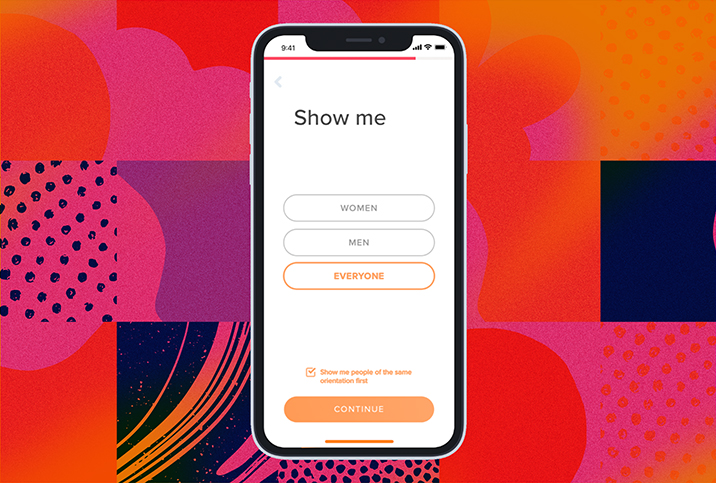
On my dating app profile, along with fun facts about my musical theater obsession and inability to wake up early, is a little rainbow flag. It's there for multiple reasons: to demonstrate pride, because I've finally gotten over my imposter syndrome enough to believe I deserve to use it, and—mainly—to scare off homophobes and tell straight dudes that I'm bisexual. Much of the time, that little flag goes unacknowledged by my matches, because either they're also queer or they're unbothered by it. But every once in a while, a straight guy takes a look at that rainbow and decides, somehow, that it's about him.
I was chatting innocently about what I do for work with a guy on Bumble a few weeks ago when it happened. "So I noticed you're [sic] profile says bi that's pretty hot," he wrote out of the blue. Out came his patriarchal, heteronormative and misogynistic views of queer women—in addition to his lack of grammatical knowledge—in just one revolting sentence. As I stared at the screen in disgust and disappointment, I wondered, "Does he actually think that's flirty? What world does he live in if he thinks that's going to work?"
I immediately stopped answering, as I've done every other time a cishet man has sexualized my interest in all genders, but he didn't give up there. The following day, I noticed I had another message from this tone-deaf dater: "Would you ever be interested in a 3 some," he wrote, leaving me no choice but to click "Unmatch."
The experience left a bitter taste in my mouth, and I even considered erasing that colorful emoji from my profile altogether following the interaction. But that would mean letting this random dude win, I thought, and it would also—in a sense—mean disappearing back into the closet. I was not about to let that happen. Still, I couldn't seem to get his sexist, ignorant comments out of my head. Why was it bothering me so much? I already knew there were plenty of idiots out there who had no understanding of queerness or what it means to be bi, but his comments struck a particular chord with me that I couldn't quite explain.
Still-rampant bisexual misconceptions
"Bisexual people who are constantly oversexualized can start to feel very self-conscious about how they're perceived by others," said Rachel Worthington, a sexpert and writer for Bedbible in Denmark. "This can lead to inner turmoil in some bi people: They want to stay true to who they are and fully embrace their sexuality, but don't want to deal with all of the negative associations that can come along with it."
We've all heard the typical tropes about bi people: We're sexually indiscriminate or promiscuous, or being bi makes us inherently incompatible with the concepts of monogamy and fidelity in relationships. When a bi woman is open about her sexuality, especially on a dating app, she is daring to—gasp—make it clear that she has desires.
Robin Hornstein, a Pennsylvania-based queer psychologist who specializes in LGBTQIA+ concerns, said women are not typically taught to express their sexual desires.
"Women are not supposed to be sexually forward, expressing needs and wants, and bisexual women trigger confusion for people in a way that ends up ignoring that bisexuality is not just about sex," she said.
In other words, if a woman is forward enough to proactively label her desires on a dating app profile, then she must be up for anything and everything in the bedroom. Of course, queer people know our identity is about so much more than who we want to sleep with, but this narrow belief held by so many people is harmful nonetheless, especially when we're constantly confronted with it while wading through the already difficult world of online dating.
It can make us second-guess our decision to be forthright about who we are, heighten our insecurities, and invalidate an identity in which many of us—myself included—have only recently become secure. Not to mention it makes the online dating process, which is already exhausting, that much more tedious.
"How tiresome to be asked about your sexual orientation, in any way, over and over again," Hornstein said.
When men make it about themselves
As I sat with the uncomfortable feelings triggered by the Bumble messages, I realized this pervasive, ignorant attitude had played a larger role in fueling the internalized biphobia I struggled with throughout adolescence and early adulthood than I had once thought. This interaction was far from the first time a straight man had taken my identity and assumed it existed only for his pleasure. It began in high school, the first time I kissed a girl at a party while boys watched. I enjoyed kissing girls, but the intrusive, wide-eyed glances from the boys in my grade told me this had more to do with my desirability through the male gaze than it did my sexual orientation. So I subconsciously buried those feelings for as long as I could.
In a culture that tells us women exist only for men's pleasure, it's easy to assume the same must be true of female queerness. Coming to terms with my sexuality over the past two years has meant rejecting that idea and learning to believe wholeheartedly that my attraction to people other than cishet men has nothing at all to do with cishet men. It has meant learning to renounce the biphobia that abounds in our culture, constantly telling us bisexuality isn't even real. Still, every time a man sees the rainbow flag on my dating app profile and takes that to mean my sexuality is about him—for him—that internal struggle is reignited just a little bit.
But instead of giving in to that little voice inside my head that told me it would be easier to erase that flag—and the ignorant comments that often come with it—from my profile, I've made friends with the "Block" and "Unmatch" buttons on my apps. I know it's not my job to educate the biphobia out of people, though I'm happy to respond to questions asked in earnest. But what I won't do is regress to a place of insecurity and self-consciousness because a Bumble match is too small-minded to see me as a whole human. That rainbow is a reflection of my nuanced, multifaceted queer identity, and right on my profile is where it shall stay.







